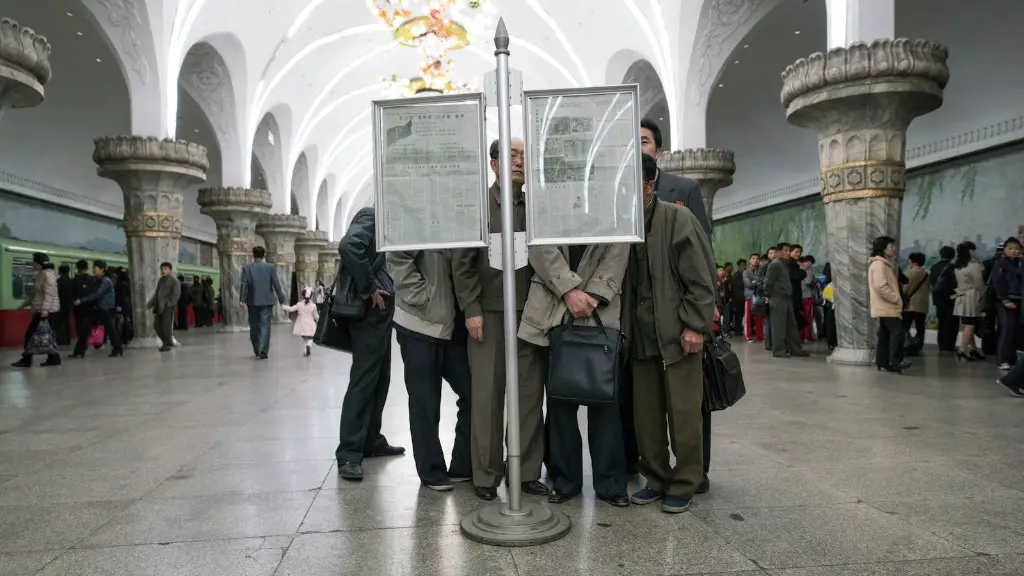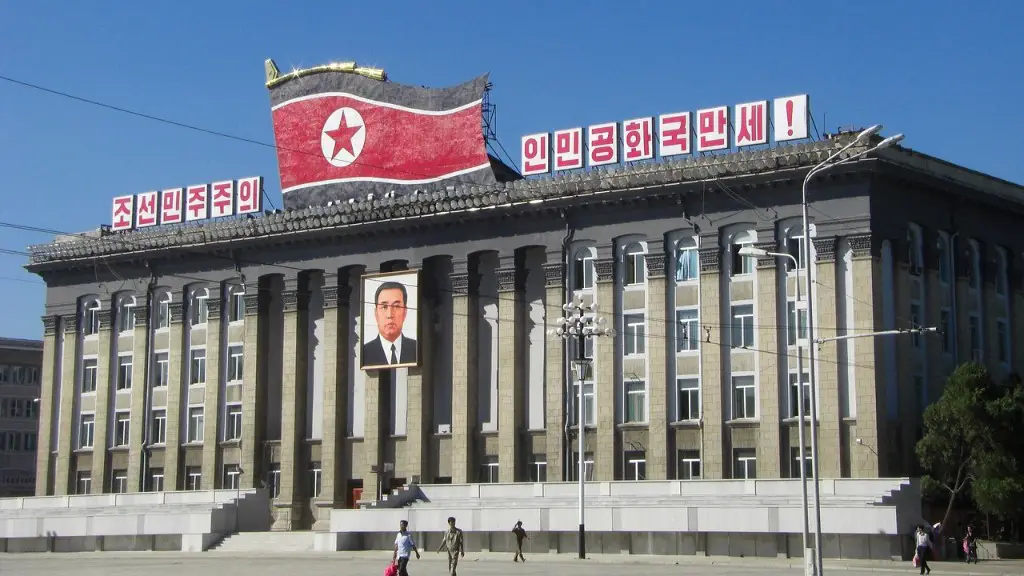Current Sino-Korean Ties
The relationship between China and North Korea, historically known as North Korea-China Alliance, is presently complicated.According to the Treaty of Friendship, Cooperation, and Mutual Assistance which was signed in 1961 between North Korea and China, both countries have pledged to ‘mutually undertake to come to the other’s defense in the event either is attacked’.However, in the modern era, due to the recent emergence of nuclear technology, it is highly unlikely that either party would go through with the proposed military action.
China has become increasingly critical of North Korea and its nuclear weapons program, with President Xi Jinping himself stating that a war could threaten China’s security. In 2017, China also responded to North Korean missile tests with a ban on coal imports and oil. As such, China may not be in a rush to back North Korea in military conflict.
China’s Strategic Interests
The chief motivation behind China’s decision to defend North Korea, in the case of a war, would be to secure its own strategic interests in the region. China is deeply concerned with the proliferation of nuclear weapons and goes to great lengths to ensure that the Korean Peninsula remains stable and has minimal military confrontations. The unification of Korea is also strategically desirable, as it would unify a fragmented economy and boost investment opportunities.
Another concern is the prospect of US involvement in the region. In 2017, President Trump declared that Washington would act alone to deter North Korean aggression. Thus, Chinese intervention could be seen as a way to counter potential US interference in the region.
Russia’s Role In the Potential Defense of North Korea
Russia also has a significant role to play if a war does break out between North Korea and its adversaries. Russia has publicly expressed its support for North Korea, noting its nuclear capabilities as an important deterrent. Russia has also expressed its opposition to a US-led pre-emptive strike against North Korea.
Additionally, the two countries have had a long-standing cooperative relationship with each other, with both having expressed a willingness to work together in the event of a war. The countries have also expressed a commitment to help each other in the event of any attack. Both Russia and China have expressed that they will not accept ‘unilateral’ action by the US in the Korean Peninsula.
Economic Engagement Between China and North Korea
Despite the numerous areas of tension between the two countries, China and North Korea have also engaged in trade and economic cooperation. China is one of the few countries that engage in regular trade with North Korea, and has provided North Korea with vital foreign revenue. This has enabled North Korea to build an advanced military and nuclear weapons infrastructure.
North Korea has also relied heavily upon China for crucial supplies of refined oil and food. China is also North Korea’s largest trading partner and the largest recipient of its imports. This has enabled North Korea to maintain its economy even in the face of heavy sanctions. Such economic ties could be one of the contributing factors for China’s potential decision to defend North Korea in the event of a war.
Analysis of the Potential Military Confrontation
If a war were to break out between North Korea and the US, it is highly likely that China would intervene to defend North Korea. The US would be reluctant to engage China in conflict, as Beijing’s military capability is far superior to that of the US.
North Korea also has numerous allies and regional partners that could potentially come to its assistance in the case of a war. China, as well as Russia, may feel obligated to offer military support to North Korea. Even countries such as Japan and South Korea, who have publicly declared their opposition to North Korean aggression, are unlikely to intervene in a potential military conflict.
China’s Political Interests
The Chinese government has enough to concern itself with at home and does not desire additional headaches. It would likely be politically disadvantageous for China to enter a military conflict, as it would likely be condemned by the international community. Additionally, it is also in the Chinese government’s best interest to maintain the stability of the region and not to cause further turmoil by engaging in a conflict.
Nevertheless, China has clearly indicated that it would take necessary steps in defense of North Korea if needed. This decision could be attributed to the country’s strategic and geopolitical interests within the region.
Chinese Media On North Korea
Chinese state media outlets have rarely voiced support for North Korean policies, instead apportioning blame to the US and its allies. The recent rhetoric has been highly critical of North Korean nuclear weapons testing, and it is becoming increasingly difficult to discern whether China is still committed to its Treaty of Friendship with North Korea.
This lack of support could potentially indicate that China would be unwilling to defend North Korea in the event of a war. Furthermore, there have been numerous reports of heavy economic cooperation between North Korea and China, which could be interpreted as a sign that Beijing is sincerely invested in North Korea’s economy.
Impact on Regional Stability
The possibility of a war involving North Korea has caused much uncertainty and instability in the region. If a war were to break out, it could potentially lead to widespread destruction, displacement, and human suffering.
Should China decide to intervene, it is likely that the course of the war could be changed drastically. As China is the only country in the region with the economic and military might to challenge the US, its involvement could potentially put an end to any potential conflict.
International Responses to the North Korean Situation
The international community has adopted a multifaceted approach to the North Korean situation, with many countries unwilling to consider military action.
The UN Security Council, in an attempt to deter North Korean aggression, has imposed a series of sanctions on the country. These sanctions have crippled the North Korean economy, limiting its capacity to conduct further tests and activities linked to its nuclear weapons program.
The US has been less willing to find diplomatic solutions to the issue, often threatening and issuing military warnings to North Korea. South Korea and Japan, both of whom have been threatened by North Korea’s ballistic missile tests, have taken a more conciliatory approach to negotiations, with both countries taking diplomatic action to try and solve the crisis.
China’s Options in the Event of a War
Should a war be declared between North Korea and the US, China would find itself in a precarious position. China may choose to stay neutral and allow the conflict to run its course, thus avoiding direct confrontation with the US. However, China has also declared that it would not accept ‘unilateral’ actions by the US and may feel obligated to intervene.
Alternatively, China may choose to mediate the conflict, acting as an active mediator between the parties. It is also likely that China would impose a series of economic and diplomatic measures in order to bring about a resolution.
Ultimately, the decision whether or not to intervene in the case of a war between North Korea and the US is entirely up to China. It remains to be seen what will be done by the Chinese government in such a scenario.
North Korean Reactions to US Aggression
North Korea has responded to US aggression with its own rhetoric, as well as military activities. In 2017, North Korea launched a series of ballistic missiles, testing its nuclear capabilities. The country also conducted a sixth nuclear weapon test in 2017.
North Korea has also engaged in political brinkmanship and has threatened to launch attacks against the US, South Korea, and Japan. The country also claims to have developed intercontinental ballistic missiles (ICBMs) capable of reaching the US mainland and has threatened to use nuclear weapons if its security is threatened.
Implications of China Defending North Korea
If China does intervene and come to North Korea’s defense, it is likely that the US would be forced to reassess its actions and potentially end any military operations in the region. Such a move could dramatically reduce the chances of war breaking out between North Korea and the US, thereby preserving the stability of the region.
It is also likely that US-China relations would be harmed as a result of Chinese intervention, as the US is highly averse to foreign interference in its affairs. This could potentially have wide-reaching implications for the international community.
The Role of Arms Embargoes in the Conflict
The international community has imposed a series of arms embargoes on North Korea to curtail its military capabilities. Such embargoes have succeeded in limiting the country’s ability to obtain weapons, however they have also had the effect of isolating the country and reducing economic activity. The embargoes have also provided an incentive to North Korea to pursue its own nuclear weapons capabilities, as its conventional military capabilities have been hindered by the sanctions.
It is unclear how China would respond to an increased arms embargo on North Kores, as such a move could be interpreted as an attempt to weaken North Korea’s defense. China has thus far resisted calls from the US to impose further sanctions on North Korea.
Regardless of whether or not China comes to North Korea’s aid in the event of a war, the conflict is likely to have far-reaching implications for China and its allies. It is likely that any decisions made by Chinese leaders will be carefully considered before being implemented.



